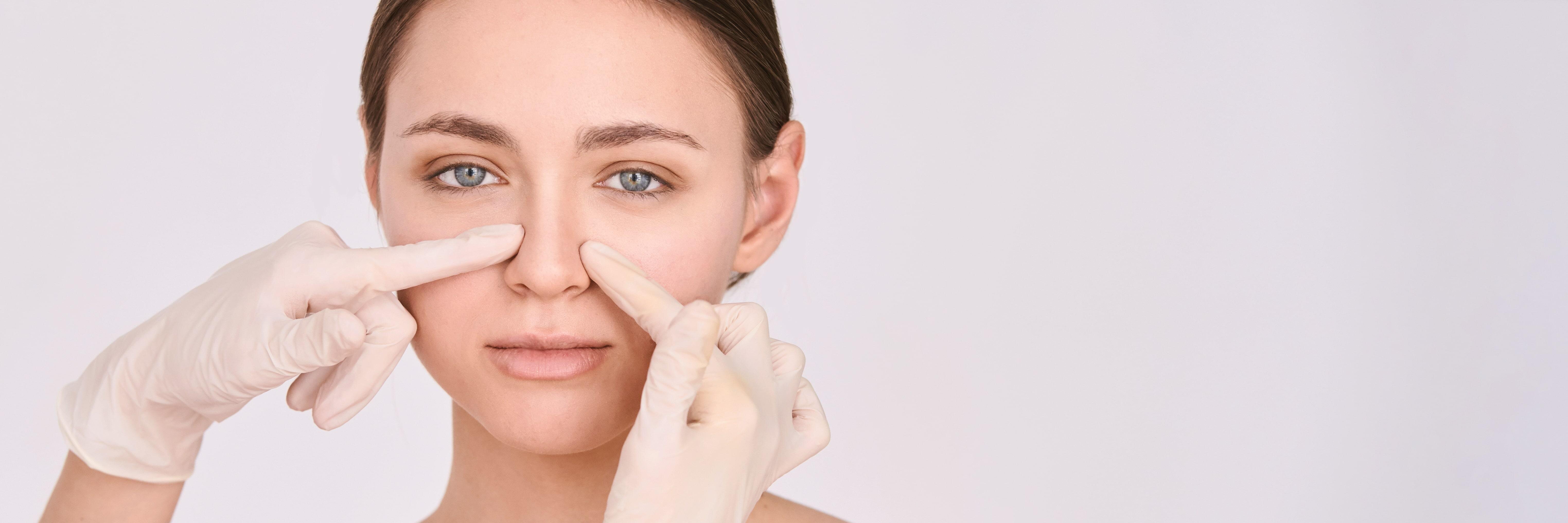When Is the Second Nose Surgery Performed?
Contents
When Is the Second Nose Surgery Performed?
The second nose surgery, in other words revision rhinoplasty, is a surgical operation carried out to revise a nose after its first surgery. Some people who have undergone nose surgery may be uncomfortable with the visual and physical results after the first surgery or they may encounter problems that develop over time. In both cases, one can have revision rhinoplasty performed to fix the complications occurred, however, the time needed before this operation changes from 6 to 12 months.
Why One Should Wait for A Year for the Second Nose Surgery?
According to Dr. Marcells, a member of the American Academy of Facial Plastic and Reconstructive Surgery, the primary step for revision rhinoplasty is to wait for the nose to recover from the effects of the previous surgery. Also, Dr. Marcells emphasizes the importance of the healing process by saying “What appears to be a problem in aesthetics or in function, can easily resolve on its own after three months”.
The complete healing of the tissue, bone and cartilage of the nose prepares a healthy environment for the revision operation. Thus, for the second nose surgery, it is necessary to wait one year after the previous one. Although it might be very difficult wait patiently in such situations, it is important for you to be sure that having revision rhinoplasty is the right decision.
If you are not satisfied with your results, you may choose not to go back to your plastic surgeon who performed the procedure, which could be seen as an opportunity to do research. A plastic surgeon who specializes in rhinoplasty and revision rhinoplasty procedures may be the best option for you. You can rely on recommendations and reviews to steer you into the right direction. But of course, if you have full confidence in your plastic surgeon, you can always request a revision from them too.
No matter how great your surgeon is, you may encounter complications or unexpected situations. You should contact your plastic surgeon to correct any problem after rhinoplasty. If you are not satisfied with your surgeon’s answers, you can always seek a second opinion too. It is recommended that you start the process only when you find a doctor you fully trust.

Be Careful After Your Second Nose Surgery!
It is very important to follow the surgeon’s aftercare recommendations in order to recover as quickly as possible after rhinoplasty surgery.
What To Do After Second Rhinoplasty?
The things you should do can be listed as;
- Have rest. You might feel some discomfort for a few days, especially right after the operation, but it is normal, don’t worry. It resolves, generally, by the end of the first week.
- Consume at least 2-2.5L water per day. The more hydrated you keep your body, the more you will help reduce swelling after surgery.
- Try to sleep in a position with your head elevated.
- It is important that you go to follow-up appointments after the surgery.
- Do not neglect to use the medicines prescribed by your doctor regularly.
- You can apply ice compresses to the affected area to reduce post-operative oedema.
- You can use saline nasal spray to keep the inside of the nose moist and clean.
What Not To Do After Second Nose Surgery?
What you should not do after the second rhinoplasty is at least as important as what you should do. These are as follows;
- Do not participate in any strenuous activity for at least two weeks after surgery. You must avoid at all costs, for at least a few months, from activities that can cause injury, such as sports.
- Do not worry about any signs of post-operative complications or infection. Your recovery process will take place over time.
- Avoid injuring your nose during recovery.
- Do not skip follow-up appointments. These appointments will speed your recovery up.
- Avoid blowing your nose, if possible, for the first 3 weeks after surgery.
- Do not consume spicy or salty foods for 3 weeks after surgery.
- Do not take any medications or supplements that thin the blood such as ibuprofen, aspirin, ginkgo biloba for at least two weeks after the procedure.
- Don’t worry about your recovery. The process can be slow and uncomfortable, yet anxiety can be just as detrimental to the healing process as physical exertion. Stay calm and positive, and try to get plenty of rest.
- Avoid alcohol consumption.
- Do not smoke.

 Whatsapp
Whatsapp
 Call now
Call now
 EN
EN TR
TR DE
DE FR
FR IT
IT ES
ES AR
AR